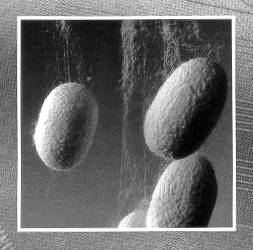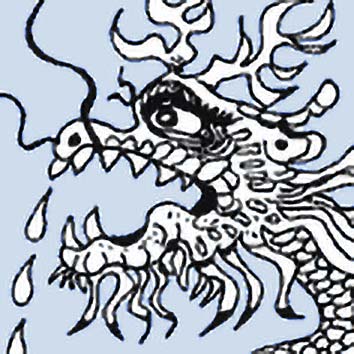American Qigong Ethics (part 2)
/"Oh great," I say, "tell me more."
She tells me he leads a cancer group at one of the local Integrative-Medicine hospital clinics. "What makes him a master?" I ask, explaining that Qigong as medicine is a pretty new idea, and that taxi drivers in China are awarded the title "Master" (Shirfu) as well.
"Oh he's amazing." She said, "We do a style of walking Qigong around a small park and one day a drunk homeless guy stood up and moved imposingly toward our path shouting insults. My master just waved his hand and the guy promptly went over to a bench and fell asleep."

"O.K." I thought to myself, "Obe-Wan Kenobi did that in the Star Wars movie too!" "That's an extraordinary claim," I say. "Are you learning how to do that? What other sorts of claims does he make?"
"Oh, he is very modest. He would never make such a claim himself. I just do it everyday because it makes me feel healthy."
Now, eye rolling aside, I'm not a truth junkie. I don't want to pop this woman's balloon. I don't know what he is personally claiming, but she has apparently talked herself into exercising everyday. Who am I to get in the way of that?
Still there is a significant chance that I have been practicing qigong longer than her "Master," who I suspect invented a lineage and an improbable training history. It diminishes me in two ways. First, some people will assume I'm not very knowledgeable because I don't do these sorts of amazing feats. Second, other people may associate Qigong with these improbable claims and disregard my knowledge altogether. Both of these things happen all the time.
Does her master have some ethical responsibility to clarify his powers of agency? How different is this from Jerry Alan Johnson who wrote a dictionary sized book on Qigong that I wouldn't even use as a door-stop? Johnson uses the "sword-fingers" mudra to do "needless" acupuncture, and one of his students is the main Qigong teacher at a Berkeley Acupuncture School.
I acknowledge that charismatic Qigong teachers get disciplined health commitments from
 their students or clients that I don't get. If you tap into a client's insecurities, or their desire for power, by convincing them that they will be freer, or happier, or stronger, or more preceptive, or even more intuitive, if only they quit eating fried chicken and do some groovy breathing exercise--who am I to get in the way? Those commitments are legitimately good for one's health. Other people are free to subordinate themselves to people and ideas.
their students or clients that I don't get. If you tap into a client's insecurities, or their desire for power, by convincing them that they will be freer, or happier, or stronger, or more preceptive, or even more intuitive, if only they quit eating fried chicken and do some groovy breathing exercise--who am I to get in the way? Those commitments are legitimately good for one's health. Other people are free to subordinate themselves to people and ideas.The first American Qigong Precept that I propose is this (I know, it's a little long for a precept):
When you don't know, admit you don't know! Teach your students to do the same. Do not make claims about healing properties that you can not substantiate. Clear explanations are O.K., anecdotes are not unless you say, "This is an un-substantiated anecdote!"
Good storytelling can be a useful teaching method because it has the power to make metaphors memorable. When you present stories as history, go ahead and give the good-guys white hats and the bad-guys black hats--but beware, your are walking a fine line--make sure your students are sensitive to the presence of ambiguity.
If your knowledge comes from intuition admit that, and don't cross the line of claiming to know with certainty.

 As Americans we have always come face to face with cultures different from our own. Multi-culturalism is an ethic based on our sense of what is right and good and desirable in a society. Unfortunately multiculturalism often gets conflated with cultural relativism.
As Americans we have always come face to face with cultures different from our own. Multi-culturalism is an ethic based on our sense of what is right and good and desirable in a society. Unfortunately multiculturalism often gets conflated with cultural relativism. If you are teaching "qigong healing" and just happen to pull a rabbit out of your hat, is it ethical to say "My qi is feeling jumpy today?" I think not. I think you should say, "I will now attempt to pull a rabbit out of my hat," do the deed, then say, "Ta-Dah!" and take a bow.
If you are teaching "qigong healing" and just happen to pull a rabbit out of your hat, is it ethical to say "My qi is feeling jumpy today?" I think not. I think you should say, "I will now attempt to pull a rabbit out of my hat," do the deed, then say, "Ta-Dah!" and take a bow.
 The reason for discipline is to make a practice irreversible.
The reason for discipline is to make a practice irreversible. For example, the Kitchen God lives over the stove in Chinese homes. He represents an irreversible commitment to keep the house clean. The method is cleaning on a regular schedule. When cleaning becomes "second nature" the method can become more spontaneous, but it can't really be dropped. The fruition is living in a cleaner, simpler, healthier environment, where things are easy to find, easy to store, and easy to get rid of.
For example, the Kitchen God lives over the stove in Chinese homes. He represents an irreversible commitment to keep the house clean. The method is cleaning on a regular schedule. When cleaning becomes "second nature" the method can become more spontaneous, but it can't really be dropped. The fruition is living in a cleaner, simpler, healthier environment, where things are easy to find, easy to store, and easy to get rid of. Most Daoist inspired methods reveal something about your true nature. Often it is an appetite of some kind. The most obvious example is that sitting or standing practices reveal an appetite for stillness. After about two years of discipline your appetite should be strong enough to direct your practice, rigid or militaristic discipline will actually hold you back. I know my morning standing practice is irreversible because if some anomaly or emergency disrupts my practice, the rest of the day I feel myself being pulled toward stillness--At the end of the day I jump into bed and savor the thought of waking up to my practice.
Most Daoist inspired methods reveal something about your true nature. Often it is an appetite of some kind. The most obvious example is that sitting or standing practices reveal an appetite for stillness. After about two years of discipline your appetite should be strong enough to direct your practice, rigid or militaristic discipline will actually hold you back. I know my morning standing practice is irreversible because if some anomaly or emergency disrupts my practice, the rest of the day I feel myself being pulled toward stillness--At the end of the day I jump into bed and savor the thought of waking up to my practice. I live and teach in San Francisco in a well sheltered park which is an old stone quarry. For the whole summer there have been three large crows hanging out in the park every morning.
I live and teach in San Francisco in a well sheltered park which is an old stone quarry. For the whole summer there have been three large crows hanging out in the park every morning.

 Getting enough sleep is one thing. Consistently sleeping until you are not tired is another thing entirely.
Getting enough sleep is one thing. Consistently sleeping until you are not tired is another thing entirely. .
. Here is a concept from Chinese Medicine which has a lot of currency for internal martial artists.
Here is a concept from Chinese Medicine which has a lot of currency for internal martial artists.